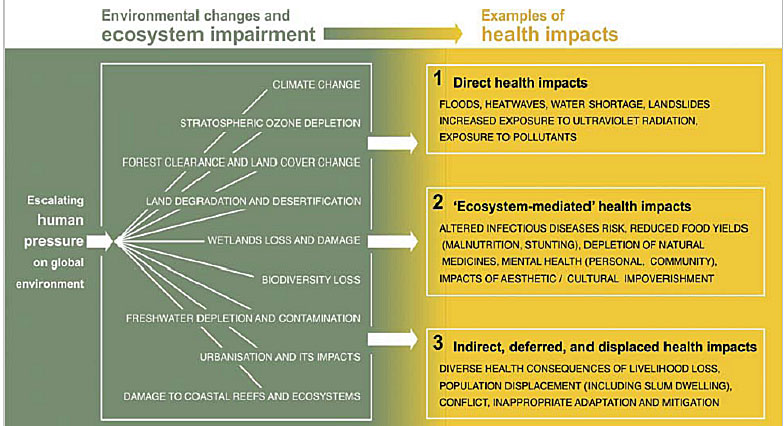Resources: Inequalities and the social determinants of health
Resources: Inequalities and the social determinants of health
The abstract of the paper Social determinants of health inequalities by Marmot, gives a clear outline of the problem of health inequalities: "The gross inequalities in health that we see within and between countries present a challenge to the world. That there should be a spread of life expectancy of 48 years among countries and 20 years or more within countries is not inevitable. A burgeoning volume of research identifies social factors at the root of much of these inequalities in health. Social determinants are relevant to communicable and non-communicable disease alike. Health status, therefore, should be of concern to policy makers in every sector, not solely those involved in health policy."
There have been many descriptions of the existence of health inequalities, and of the social determinants of these inequalities, as well as of the potential solutions.
Determinants of health. A nice summary of the way that social and personal factors influence the pattern of disease can be seen in the picture below, adapted from the work of Dahlgren and Whitehead.
From Jinks et al. licensed under CC BY 2.0
Some solutions. You can find a WHO Commission report at the Social determinants of health web site of WHO (Note: please look around this site which has lots of interesting information about health inequalities and the social determinants of health - the Report summarises its solutions:
1. Improve daily living conditions.
Improve the well-being of girls and women and the circumstances in which their children are born, put major emphasis on early child development and education for girls and boys, improve living and working conditions and create social protection policy supportive of all, and create conditions for a flourishing older life. Policies to achieve these goals will involve civil society, governments, and global institutions.
2.Tackle the inequitable distribution of power,money and resources.
In order to address health inequities, and inequitable conditions of daily living, it is necessary to address inequities - such as those between men and women - in the way society is organized. This requires a strong public sector that is committed, capable, and adequately financed. To achieve that requires more than strengthened government - it requires strengthened governance: legitimacy, space, and support for civil society, for an accountable private sector, and for people across society to agree public interests and reinvest in the value of collective action. In a globalized world, the need for governance dedicated to equity applies equally from the community level to global institutions.
3. Measure and understand the problem and assess the impact of action.
Acknowledging that there is a problem, and ensuring that health inequity is measured - within countries and globally - is a vital platform for action. National governments and international organizations, supported by WHO, should set up national and global health equity surveillance systems for routine monitoring of health inequity and the social determinants of health and should evaluate the health equity impact of policy and action. Creating the organizational space and capacity to act effectively on health inequity requires investment in training of policy-makers and health practitioners and public understanding of social determinants of health. It also requires a stronger focus on social determinants in public health research.
Health Equity Monitor. Please look around this site, from the WHO Global Health Observatory, which shows some selected data on health inequity globally.
The ecosystem. Finally, the above information downplays the vital importance of the ecosystem on health - it is summarised in this figure (from WHO Global Environmental Change) which shows how various environmental factors can influence health

Reprinted from Global environmental change (accessed June 10th, 2020).(accessed June 10th, 2020).